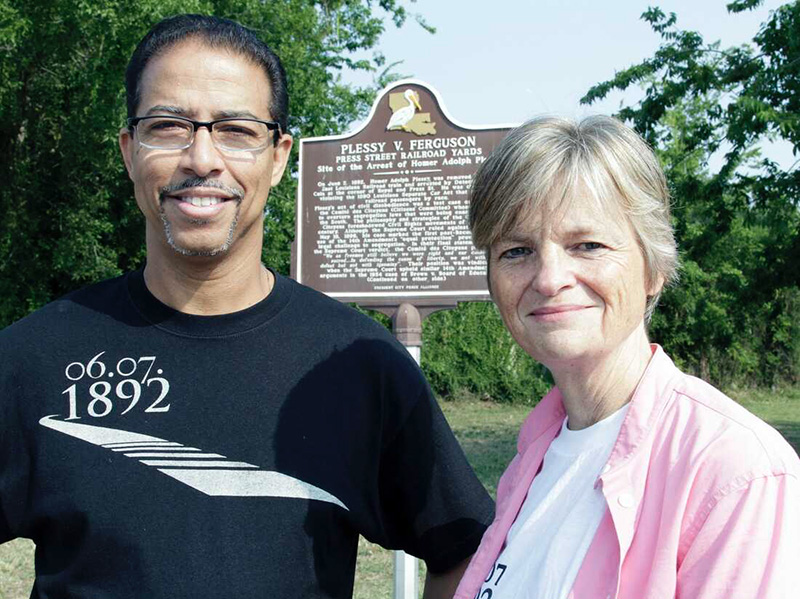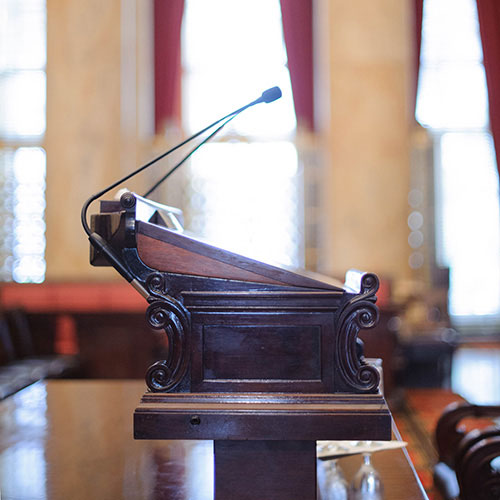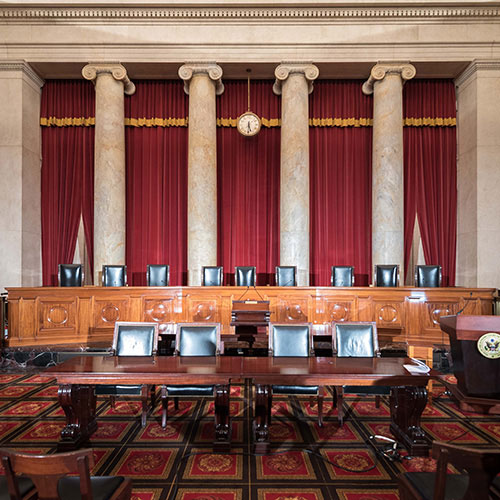
On January 5, 2022 John Bel Edwards, governor of the state of Louisiana, granted a full posthumous pardon to Homer A. Plessy. He was the plaintiff in Plessy v. Ferguson (1896), the pernicious decision in which the Supreme Court upheld the constitutionality of racial segregation under the “separate but equal” doctrine. To announce the pardon, Governor Edwards stood at the location where Plessy purchased his ticket to board the whites-only train car in 1892 to challenge Louisiana’s Separate Car Act. A 29-year old Creole shoemaker, Plessy was part of a civil rights group that challenged that state law mandating segregated seating on the train. He knew he would be arrested: he was part of a choreographed test case. Plessy eventually pleaded guilty and was fined $25. He died in 1925 with the conviction still on his record. His descendent, Keith Plessy, stood next to the governor while the pardon was issued. “I feel like my feet are not touching the ground today because the ancestors are carrying me,” he said.
District Attorney Jason Williams asked for the pardon thanks to a new Louisiana law that grants pardons to anyone convicted of violating a state law that enforced racial segregation. He said of the pardon request: “It was important that the office that prosecuted Homer Plessy be the office that asked for his name to be pardoned.” Williams added: “I submitted it asking for us to be forgiven, the institution.”
New Orleans has made other efforts to acknowledge Plessy’s historic role in advocating for civil rights: in 2018 the City Council voted to rename a section of the street where he tried to board the train in his honor. Keith and other descendants of Plessy have become friends with descendants of John Howard Ferguson, the judge who oversaw his case in Orleans Parish Criminal District Court. Together they formed a nonprofit that advocates for civil rights education.
Steve Luxenberg, author of Separate: The Story of Plessy v. Ferguson, and America’s Journey from Slavery to Segregation, commented on the pardon in The Washington Post. “Like so much of the racial reckoning now underway, Plessy’s pardon is both atonement and opportunity. Atonement for treating Plessy as a criminal. Opportunity to learn about and honor the long line of 19th-century men and women on whose shoulders he stood.” There is no better way to learn about the origins of the case and its significance than to read Luxenberg’s riveting book.




